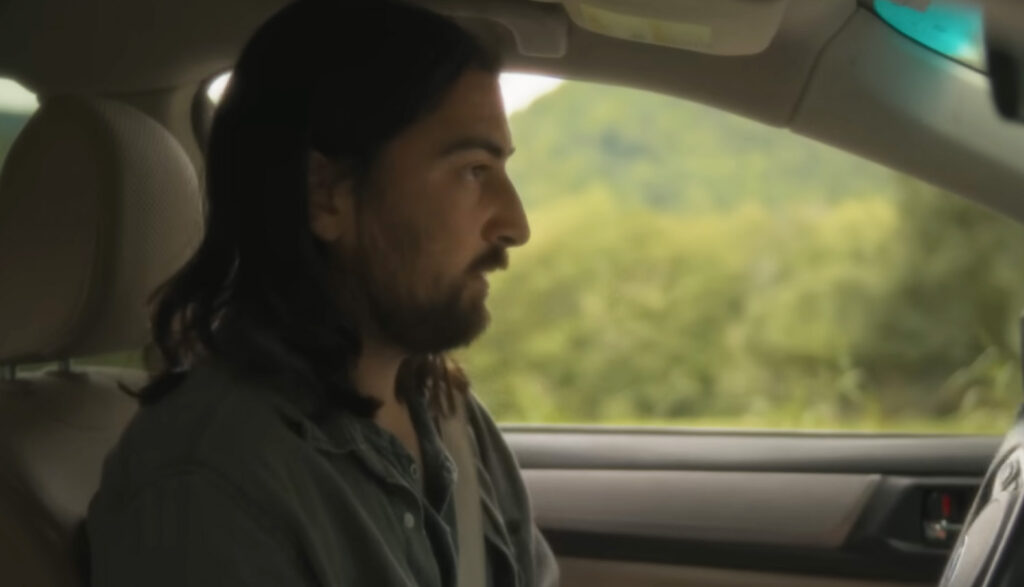
Nothing hits as hard as heartbreak.
And heartbreak is something that 27-year-old Noah Kahan seems to know well.
This Vermont native is climbing the charts with his transparent, folksy music. But just because mainstream media is finally getting a glimpse into Kahan’s life, doesn’t mean he’s a “new” artist.
Kahan’s passion for music and writing began at a young age, listening to artists such as Cat Stevens, Paul Simon and even Kahan’s own father (Josh Kahan) who, according to Kahan, was a great musician. Similarly, his love for writing stemmed from his mother, best-selling author Lauri Berkenkamp, whom he credits as the one that helped him to hone his craft starting at age 8.
His songs often deal with heartbreak; small-town, New-England living; anxiety; depression; and lots of therapy.
Kahan shares, “I was very fortunate…to be in a family where talking about your feelings was encouraged. Where seeing therapy was encouraged. There was a really positive environment in my household around a conversation about mental illness, and that helped me never really feel that discomfort around writing about it.”
That same freedom of expression, both emotionally and lyrically, is a contributing factor to the success of his latest hit, “Stick Season.”
This single, which is also the title of his third album, came out back in 2022, but it’s just now climbing the charts in a major way, landing at No. 10 on Billboard’s Hot 100 chart.
“Stick Season” sounds like a quintessential indie hit, at least sonically, but it dives deep as Kahan processes a breakup that took a toll on his emotions, his mental health and his liver.
This song is actually very introspective and one that many can probably relate to.
Kahan begins by remembering a girlfriend who promised a future together, but ultimately broke her promise (“As you promised me that I was more than all the miles combined/You must have had yourself a change of heart like/Halfway through the drive…/Kept on drivin’ straight and left our future to the right”).
He then works through all the emotions that inevitably follow lost love, such as anger (“Now I’m stuck between my anger and the blame I cannot face”), disillusionment (“I saw your mom, she forgot that I existed”), loneliness (“And I’ll dream each night of some version of you/That I might not have, but I did not lose”) and even denial (“So I thought that if I piled something good on all my bad/That I could cancel out the darkness I inherited from Dad”).
Kahan turns to alcohol to cope with his loss and the fact that he knows he’s guilty of playing the victim in this now-forgotten relationship (“And it’s half my fault, but I just like to play the victim/I’ll drink alcohol ’til my friends come home for Christmas”).
He also admits to trying to forget by using marijuana (“And memories are somethin’ even smoking weed does not replace”).
I like reviewing songs that have a lot of honest content, even if they’re messy.
And this song is both honest and messy.
It’s ultimately about lost love and how incredibly difficult and painful it is to work through the reality that the person you once loved, no longer loves you.
I don’t think there’s anything wrong with being honest about how difficult life can be. Nor do I think there’s anything wrong with being honest about how you might struggle or turn to negative coping mechanisms.
The issue here would really be in mimicking this behavior and the choice to drink alcohol and smoke marijuana to drown your sorrows. And in how many times you decide to put this emotionally wrought song on repeat.


Kristin Smith joined the Plugged In team in 2017. Formerly a Spanish and English teacher, Kristin loves reading literature and eating authentic Mexican tacos. She and her husband, Eddy, love raising their children Judah and Selah. Kristin also has a deep affection for coffee, music, her dog (Cali) and cat (Aslan).